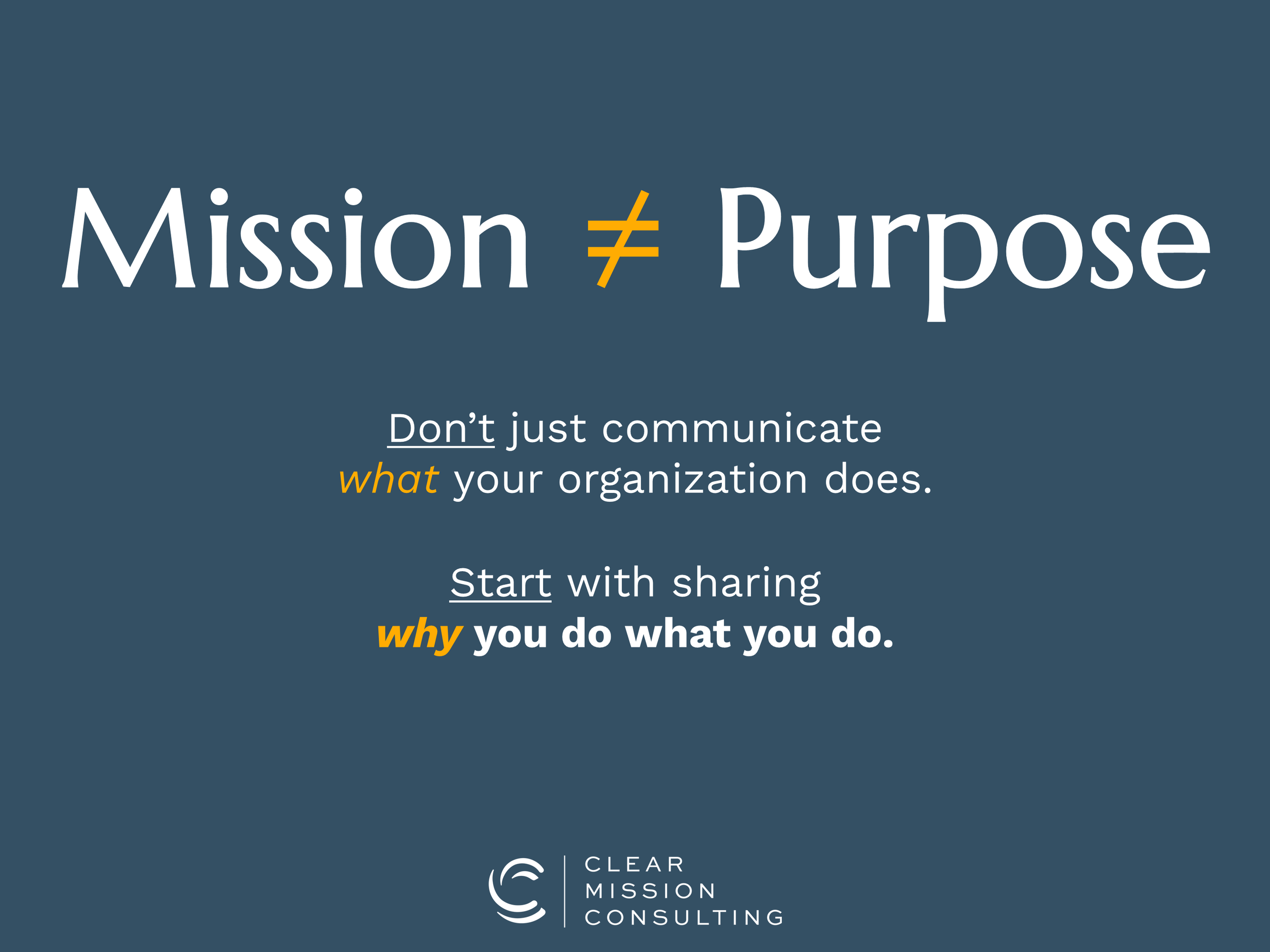Your Mission is Not Your Why
October 3, 2024 | By David M. Wagner
When you share your organization’s work with others, do you start with what you do? Or do you start with why you do it?
A friend of mine, a nonprofit co-founder, has been frustrated by her board’s recent approach to its decisions.
She shared with me that the board seems very caught up in how to improve the organization’s work.
She’s concerned because it seems there isn’t much discussion about why the organization is taking on certain initiatives.
For instance, an event the nonprofit recently organized looked like a big success – from a mission standpoint. Dozens of community members had turned out to participate.
Yet, the people who showed up represented a relatively narrow (and wealthier and whiter than average) segment of the local population.
You see, her purpose in creating this nonprofit was to create bonds across diverse swaths of the community – and that didn’t happen at this event.
As the organization had grown, that purpose has gotten lost in the mix. And the board has not developed a clear, shared understanding of why they do the work they do.
Why-First Messaging
Simon Sinek popularized the idea of beginning with purpose through his TedX talk and book Start with Why.
He uses this illustration of how Apple communicates its work, internally and externally:
(Why) “We believe in challenging the status quo and in thinking differently”
(How) “We make our products beautifully designed, simple to use, and user-friendly”
(What) “We just happen to make great computers”
Sinek argues that focusing on why first makes Apples both more innovative and more successful at marketing its products than its competitors.
Purpose Statements for Nonprofits
When I facilitate vision development for nonprofits, I work with stakeholders to capture a purpose statement that reflects shared, underlying beliefs driving the organization’s work.
Here are some examples:
“Every young person deserves to thrive in a safe community that nurtures their physical, mental, and social wellbeing”
“Access to knowledge, exposure to different points of view, and safe opportunities to connect with one another are essential to a functioning community”
“Every student deserves a chance to create a better life for themselves without compromising their sense of identity”
Why are these “why” statements so important?
They inspire people to engage with your organization and stay motivated to support your mission.
They endure as a core part of your identity, even when your mission evolves.
They guide your decisions about which way to go when new opportunities and challenges arise with one eye on the big picture.
Whether you’re developing strategy, setting goals for your team, or planning an ask or offer for funders, don’t let what you do crowd out why you do it. Begin with purpose.
And if you need assistance sorting out that purpose – either as a workshop or a facilitated strategic plan – set a free consultation to discuss how I can help clearly communicate your why.


